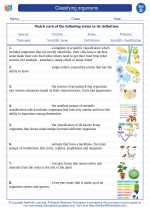Classifying organisms -> psychiatry
Psychiatry
Psychiatry is a medical specialty focused on the diagnosis, treatment, and prevention of mental, emotional, and behavioral disorders. Psychiatrists are medical doctors who are trained to evaluate both the mental and physical aspects of psychological problems.
What is Psychiatry?
Psychiatry is a branch of medicine that deals with the study and treatment of mental disorders. It involves understanding the biological, psychological, and social factors that contribute to mental illness, and offering interventions to help individuals manage and overcome their conditions.
Key Concepts in Psychiatry
- Mental Disorders: Psychiatry focuses on understanding and treating a wide range of mental disorders, such as depression, anxiety, schizophrenia, bipolar disorder, and more.
- Diagnosis: Psychiatrists use interviews, assessments, and sometimes lab tests to diagnose mental disorders and differentiate them from other medical conditions.
- Treatment: Treatment options in psychiatry include medication, psychotherapy, and other interventions aimed at improving mental health and well-being.
- Prevention: In addition to treating existing mental disorders, psychiatry also involves efforts to prevent the development of mental health problems through education, early intervention, and public health initiatives.
Study Guide for Psychiatry
If you are interested in learning more about psychiatry, here are some key topics to explore:
- Overview of Mental Disorders: Learn about the different types of mental disorders and their symptoms.
- Psychiatric Assessment: Understand the methods and tools used by psychiatrists to evaluate and diagnose mental health conditions.
- Treatment Modalities: Explore the various treatment options available in psychiatry, including medication, therapy, and other approaches.
- Psychiatry and Society: Examine the impact of mental health on individuals, families, and communities, and the role of psychiatry in addressing societal mental health challenges.
- Emerging Trends: Stay informed about the latest research and developments in the field of psychiatry, including new treatment modalities and advancements in understanding mental disorders.
By studying these topics, you can gain a deeper understanding of psychiatry and its role in promoting mental health and well-being.
.◂Science Worksheets and Study Guides Fourth Grade. Classifying organisms

 Worksheet/Answer key
Worksheet/Answer key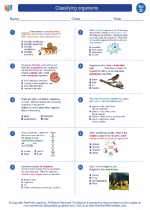
 Worksheet/Answer key
Worksheet/Answer key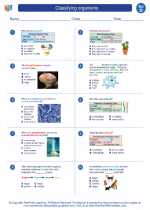
 Worksheet/Answer key
Worksheet/Answer key
 Vocabulary/Answer key
Vocabulary/Answer key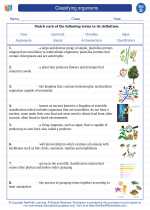
 Vocabulary/Answer key
Vocabulary/Answer key
 Vocabulary/Answer key
Vocabulary/Answer key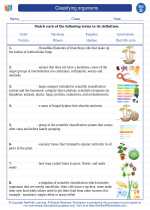
 Vocabulary/Answer key
Vocabulary/Answer key